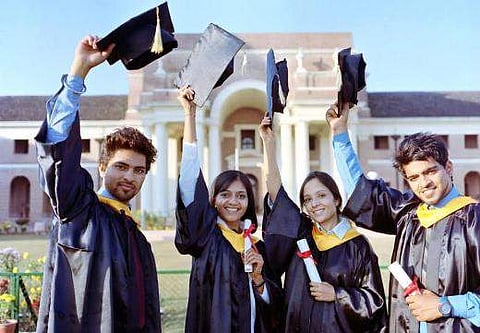

India has the largest number of mobile phone users in the world, so even imparting education has become easier to through phones than through an actual classroom. This is why it isn't surprising when Geoff Stead, Director of Digital, Cambridge Assessment English tells us that an English quiz app has had over 2 million downloads in just six months.
Cambridge Assessment English has been developing several apps and mobile-friendly software that makes learning interesting as well as effective, for young children as well as older learners. "We recently developed an entire course for Business English but then people were more interested in downloading an app for the same. So now we are trying to create an app," said T K Arunachalam, Regional Director- South Asia, Cambridge Assesment English.
Besides students, CAE also provides support to teachers through apps. But now CAE is trying to reach out to areas that have no access to the internet as well and develop courses that can be used in areas with low net connectivity.
Sunil Paliwal, Principal Secretary, High Education, Government of Tamil Nadu was also a participant in the panel discussion who appreciated the fact that technology was creating such drastic changes in education. "However, I think that the traditional methods of should be improved first to better make use of technology. For example, for e-governance, we have to ensure that there is governance first," he explained.
The panel discussion was happening on the occasion of the 'Best 25 Preparation Centre Awards for Higher Education in South Asia' organised by the Cambridge Assessment English. The awards acknowledge the best preparation centres for Cambridge English exams for the higher education sector in South Asia, and to create awareness on leveraging technology in education. A large number of the awardees were from institutions in Chennai and Tamil Nadu.
